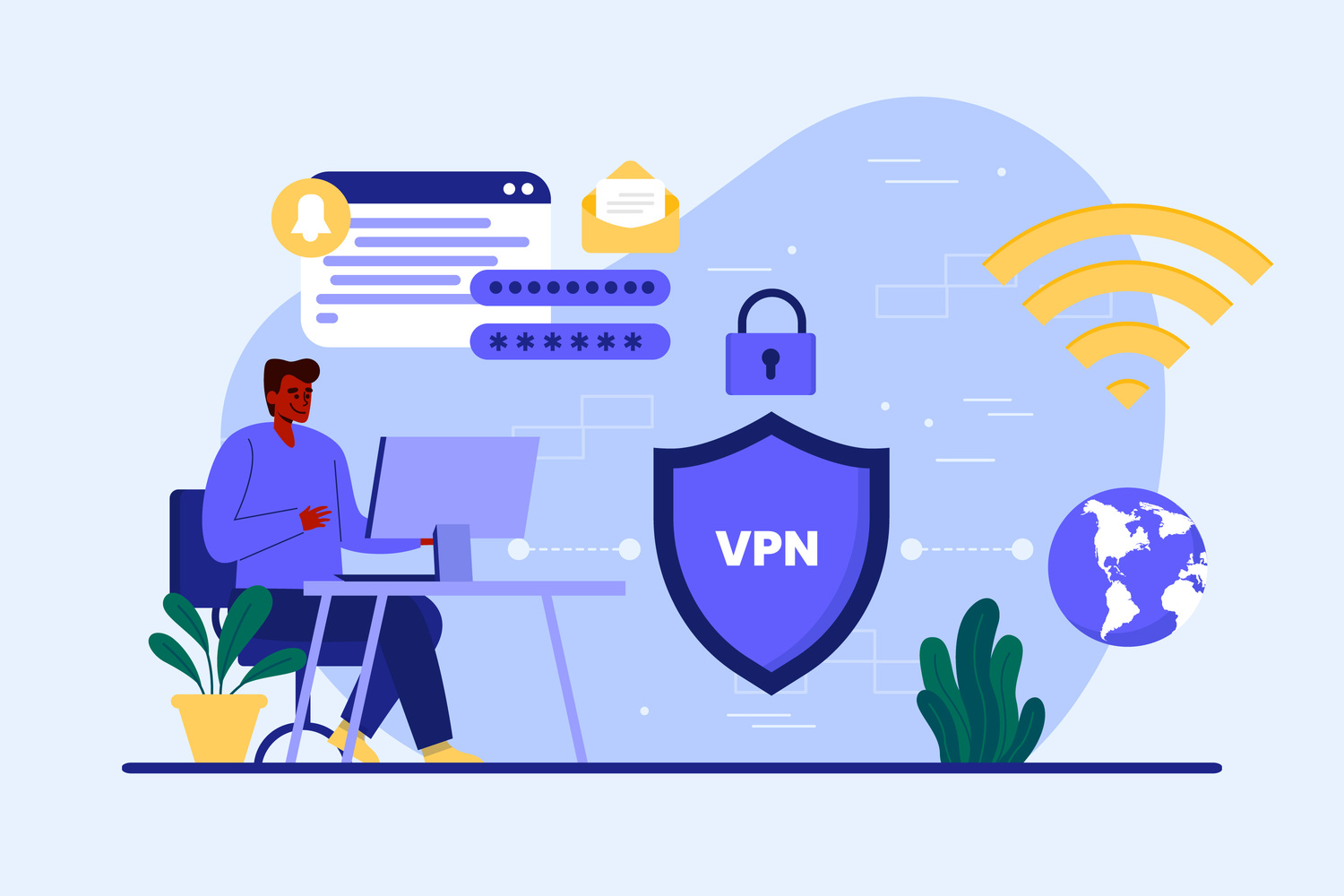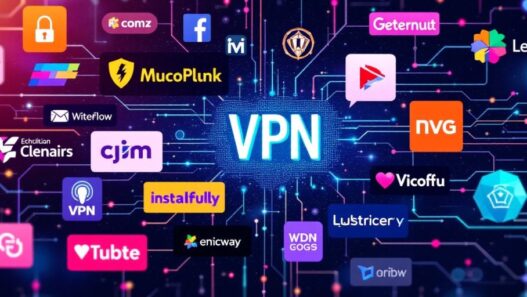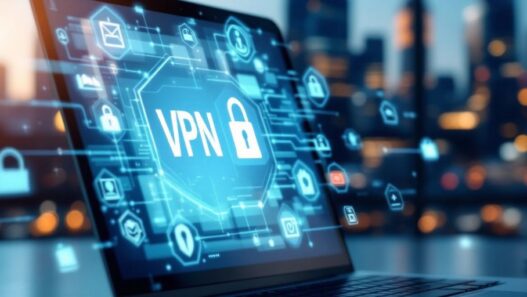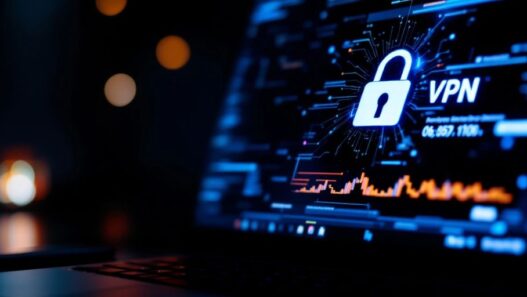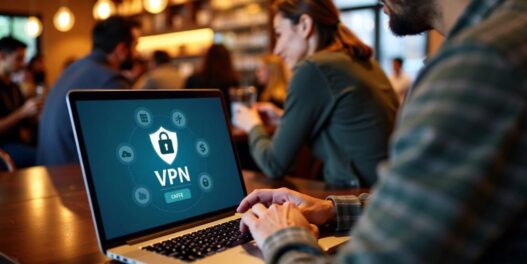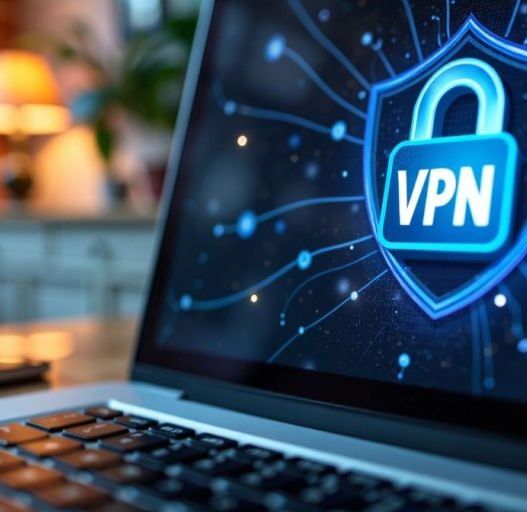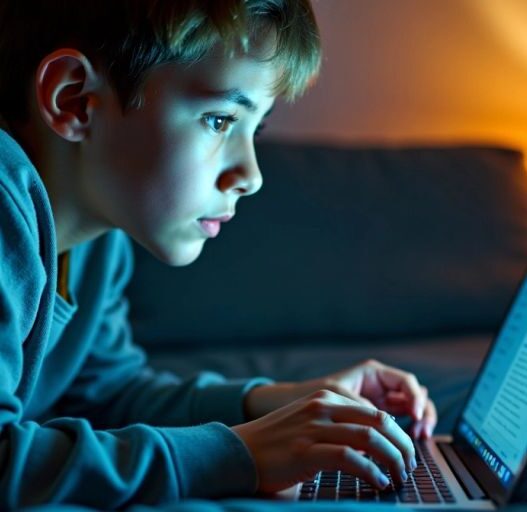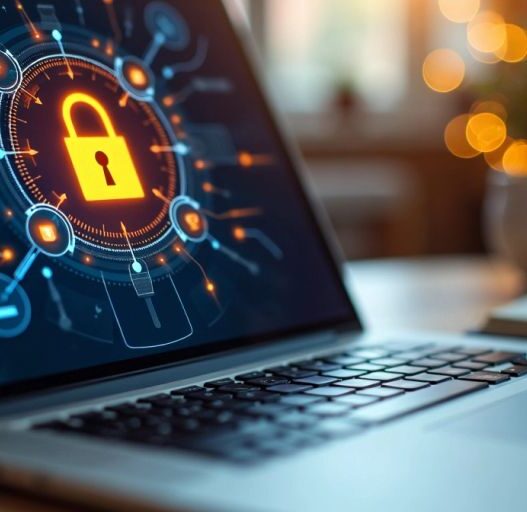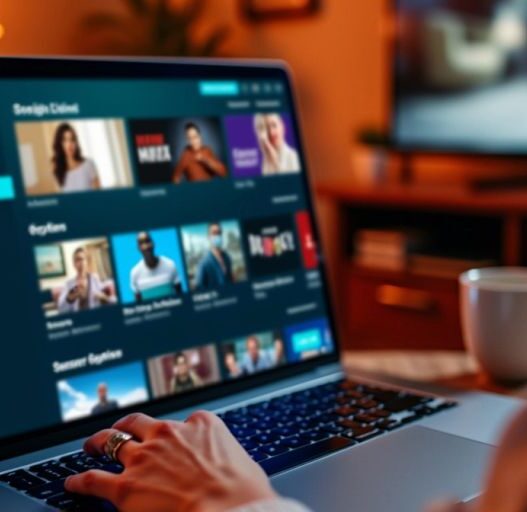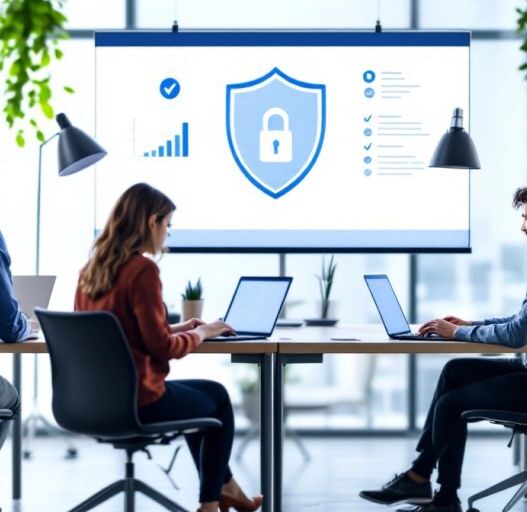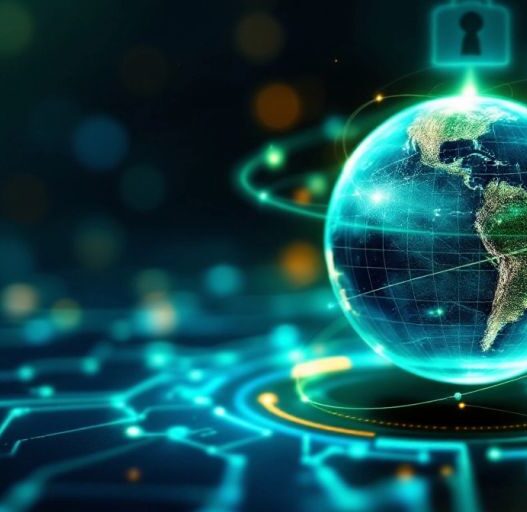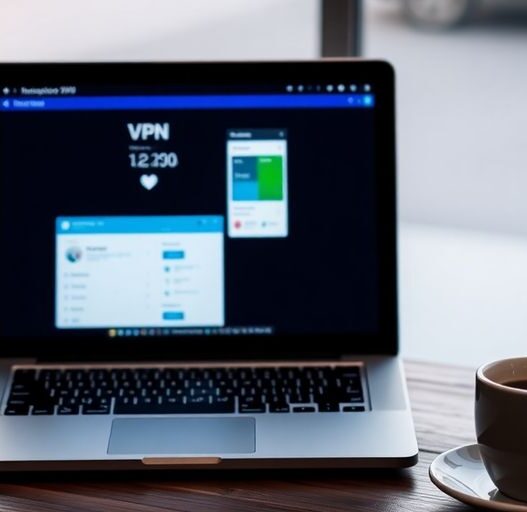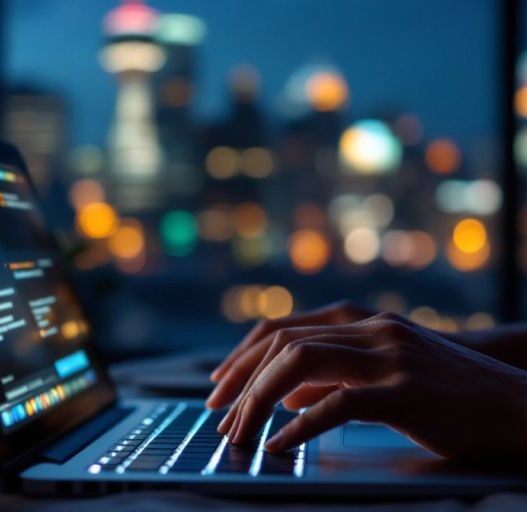In today’s world, using public Wi-Fi is almost unavoidable. Whether you’re at a coffee shop, airport, or library, these networks can be tempting but risky. A Virtual Private Network (VPN) can help keep your data safe when you’re connected to these unsecured networks. This article explores how VPNs work, the dangers of public Wi-Fi, and why using a VPN is essential for protecting your personal information online.
Key Takeaways
- VPNs encrypt your data, making it unreadable to anyone trying to steal it.
- Using a VPN hides your real IP address, keeping your location private.
- Public Wi-Fi networks are often insecure, making them easy targets for hackers.
- Choosing a reliable VPN can protect your data while using public networks.
- Always use a VPN when accessing sensitive information on public Wi-Fi.
Understanding the Basics of VPNs

What is a VPN?
A VPN, or Virtual Private Network, is a tool that creates a secure connection between your device and the internet. It acts like a protective shield, keeping your online activities private from hackers and other prying eyes. By using a VPN, users can browse the web without revealing their location or personal information.
How VPNs Work
VPNs work by routing your internet traffic through a secure server. This process involves:
- Encryption: Your data is converted into a code, making it unreadable to anyone who might intercept it.
- IP Address Masking: Your real IP address is hidden, and the website sees the VPN server’s IP instead.
- Secure Tunneling: All your online activities are sent through a secure tunnel, protecting them from potential threats.
Key Features of VPNs
VPNs come with several important features that enhance online security:
- Online Privacy: Keeps your browsing history and personal data safe from snoopers.
- Protection on Public Wi-Fi: Secures your connection when using public networks, which are often less secure.
- Access Control: Allows users to connect to specific resources securely, preventing unauthorized access.
Using a VPN is a smart choice for anyone concerned about their online safety, especially when connecting to public Wi-Fi networks.
The Risks of Using Public Wi-Fi Without a VPN
Using public Wi-Fi can be convenient, but it comes with serious public Wi-Fi risks. Without a VPN, your data is vulnerable to various threats. Here’s a closer look at the dangers:
Common Threats on Public Wi-Fi
- Data Interception: Hackers can easily intercept data being transmitted over unsecured networks.
- Malware Distribution: Cybercriminals can use public Wi-Fi to spread malware to connected devices.
- Session Hijacking: Attackers can take over your online sessions, gaining access to your accounts.
Real-World Examples of Data Breaches
- Starbucks Incident: In 2017, a security flaw in Starbucks’ public Wi-Fi allowed hackers to access customer data.
- Target Breach: In 2013, hackers used public Wi-Fi to infiltrate Target’s network, compromising millions of credit card numbers.
- Airline Wi-Fi Hack: A 2019 incident showed how hackers exploited airline Wi-Fi to steal personal information from passengers.
Why Public Wi-Fi is Inherently Unsafe
Public Wi-Fi networks are often unencrypted, making it easy for anyone nearby to snoop on your activity. Here are some reasons why they are risky:
- Open Access: Anyone can connect, including malicious users.
- Lack of Security Protocols: Many public networks do not use encryption, leaving data exposed.
- Shared Networks: Multiple users share the same network, increasing the chances of data theft.
In summary, using public Wi-Fi without a VPN is like leaving your front door wide open. Protecting your data should be a priority, especially in public spaces.
How VPNs Protect Your Data on Public Wi-Fi
Using public Wi-Fi can be risky, but VPNs offer a strong layer of protection. They help keep your data safe from prying eyes. Here’s how they work:
Encryption and Data Security
- Encryption: VPNs encrypt your data, turning it into a code that is unreadable to anyone who might intercept it.
- Secure Connection: When you connect to a VPN, your data travels through a secure tunnel to a VPN server, making it hard for hackers to access.
- Privacy: Your online activities remain private, as the VPN hides your real IP address.
Masking Your IP Address
- Changing Your Location: A VPN replaces your real IP address with one from the VPN server, making it look like you are browsing from a different location.
- Anonymity: This helps keep your identity hidden, so websites and potential snoopers can’t track your online behavior.
- Access to Restricted Content: By masking your IP, you can access content that may be blocked in your region.
Preventing Man-in-the-Middle Attacks
- Protection Against Interception: VPNs help prevent man-in-the-middle attacks, where hackers try to intercept your data.
- Secure Transactions: When you make online purchases or enter sensitive information, a VPN ensures that your data is encrypted and secure.
- Peace of Mind: Knowing that your data is protected allows you to use public Wi-Fi with confidence.
Using a VPN on public Wi-Fi is like having a security guard for your data. It keeps your information safe from those who might want to steal it.
Choosing the Right VPN for Public Wi-Fi

When it comes to using a VPN for public Wi-Fi, making the right choice is crucial for ensuring your online safety. With so many options available, it can be overwhelming to find the best fit. Here are some important factors to consider:
Factors to Consider When Selecting a VPN
- Price: Look for a VPN that fits your budget. Many services offer monthly or yearly subscriptions.
- Data Allowance: Check if the VPN has limits on data usage, especially if you plan to stream or download large files.
- Reputation: Choose a well-known VPN provider. Research online reviews to see what other users say about their experiences.
- Server Locations: A good VPN should have servers in multiple countries, allowing you to access content from different regions.
- Privacy Policy: Ensure the VPN does not log your data. A strict no-logs policy is essential for your security.
Top VPN Providers for Public Wi-Fi
| VPN Provider | Monthly Price | Key Features |
|---|---|---|
| Provider A | $9.99 | No-logs policy, 256-bit encryption |
| Provider B | $12.99 | Unlimited data, multiple server locations |
| Provider C | $4.99 | Free trial, user-friendly interface |
Free vs. Paid VPN Services
- Free VPNs: While they may seem appealing, they often come with limitations like data caps and slower speeds. They might also sell your data to third parties.
- Paid VPNs: Generally offer better security, faster speeds, and more features. Investing in a reliable service is worth it for secure public Wi-Fi access.
Choosing the right VPN is not just about price; it’s about ensuring your data remains safe while using a VPN public network security.
Setting Up and Using a VPN on Public Wi-Fi

Using a VPN on public Wi-Fi is essential for keeping your data safe. Setting it up is easier than you might think. Here’s how to do it:
Step-by-Step Guide to VPN Setup
- Choose a VPN Provider: Look for a reliable VPN service that fits your budget and needs. Consider factors like data limits and server locations.
- Install the VPN Client: Download the app for your device. Most VPNs have simple installation processes. Just follow the prompts.
- Log In: After installation, open the app and log in with your account details.
- Connect to a Server: Select a server location and connect. You’re now protected!
Best Practices for VPN Use
- Always connect to the VPN before using public Wi-Fi. This ensures your data is encrypted from the start.
- Keep your VPN app updated. Regular updates help protect against new threats.
- Use strong passwords for your VPN account. This adds an extra layer of security.
Troubleshooting Common VPN Issues
- Connection Problems: If you can’t connect, try switching servers or restarting the app.
- Slow Speeds: If your connection is slow, try a different server or check your internet speed.
- App Crashes: If the app crashes, reinstall it or check for updates.
Using a VPN is a smart way to protect your data on public Wi-Fi. It keeps your online activities private and secure.
Additional Security Measures Alongside VPNs
Using Strong Passwords
To enhance security, it is crucial to use strong passwords. Here are some tips for creating effective passwords:
- Use a mix of letters, numbers, and symbols.
- Avoid common words or easily guessable information, like birthdays.
- Change passwords regularly and do not reuse them across different accounts.
Enabling Two-Factor Authentication
Two-factor authentication (2FA) adds an extra layer of security. When enabled, users must provide two forms of identification before accessing their accounts. This can include:
- A password.
- A code sent to a mobile device.
- A fingerprint or facial recognition.
Regular Software Updates
Keeping software up to date is essential for security. Updates often include patches for vulnerabilities that could be exploited by attackers. Here’s why you should:
- Protect against new threats.
- Ensure compatibility with security tools.
- Improve overall performance and functionality.
In today’s digital world, relying solely on a VPN is not enough. Combining it with strong passwords, two-factor authentication, and regular updates can significantly enhance your online security.
Debunking Common Myths About VPNs
VPNs and Internet Speed
Many people believe that using a VPN will always slow down their internet connection. While it’s true that some VPNs can cause a lag, reputable services often maintain fast speeds. Here are some factors that can affect speed:
- Server load: Busy servers can slow down your connection.
- Distance: Connecting to a server far away can increase latency.
- Encryption: Strong encryption can take time, but it’s essential for security.
Legal Aspects of Using VPNs
Another common myth is that using a VPN is illegal. In most countries, using a VPN is perfectly legal. However, some activities conducted through a VPN may still be against the law. It’s important to:
- Understand your local laws regarding VPN use.
- Use VPNs responsibly and ethically.
- Avoid illegal activities, even when using a VPN.
VPNs and Complete Anonymity
Some users think that a VPN guarantees complete anonymity online. While VPNs do hide your IP address, they do not make you completely invisible. Here’s what to keep in mind:
- Your online activities can still be tracked by websites.
- VPN providers may log your data, so choose one with a strict no-logs policy.
- Other tracking methods, like cookies, can still identify you.
Using a VPN is a great step towards better online security, but it’s not a magic solution. Always combine it with other security measures for the best protection.
Final Thoughts on VPNs and Public Wi-Fi Security
In conclusion, using a VPN is a smart choice when connecting to public Wi-Fi. These networks can be risky, as anyone nearby might try to steal your personal information. A VPN helps keep your data safe by creating a secure connection, making it hard for hackers to see what you’re doing online. Remember, while public Wi-Fi is convenient, it’s important to protect yourself. Always use a VPN to ensure your online activities stay private and secure. Stay safe out there!
Frequently Asked Questions
What is a VPN and why do I need one?
A VPN, or Virtual Private Network, is a tool that helps keep your online activities private. It creates a secure connection to the internet, making it harder for others to see what you are doing online, especially on public Wi-Fi.
How does a VPN protect my data?
A VPN protects your data by encrypting it. This means that even if someone tries to intercept your information, they will only see scrambled data that they cannot read.
Can a VPN change my IP address?
Yes, a VPN can change your IP address. When you connect to a VPN server, it makes it look like you are browsing from that server’s location instead of your real one.
When should I use a VPN?
You should use a VPN whenever you connect to public Wi-Fi, like in cafes or airports. Public networks can be unsafe, and a VPN adds an extra layer of security.
Are free VPNs safe to use?
Free VPNs can be risky. They may not provide strong security and could sell your data. It’s usually better to choose a paid VPN for better protection.
How do I set up a VPN on my device?
Setting up a VPN is usually simple. You download the VPN app, install it on your device, and follow the instructions to connect. Once it’s set up, it will protect your online activities automatically.
